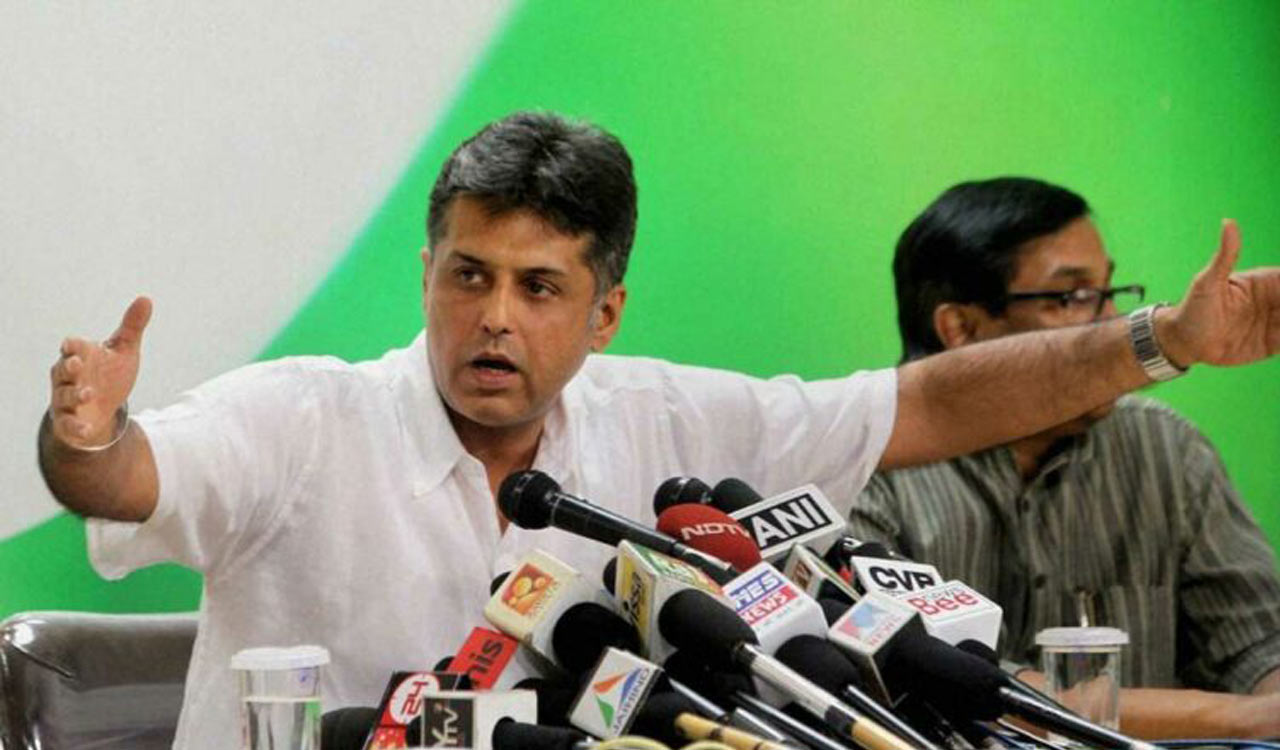Manish Tewari said that when the new legislation was introduced, all members of the opposition parties gave dissenting notes against the structure and concept of the bills
Published Date – 02:24 PM, Sat – 11 November 23

File Photo
Chandigarh: With the Bharatiya Janata Party (BJP) government at the centre keen on pushing through new Bills to replace the Indian Penal Code, Criminal Procedure Code and the Indian Evidence Act, Congress MP Manish Tewari cautioned that these new legislations are “extremely draconian” and will eventually turn the country into a “police state”.
“These provisions are extremely draconian and ultimately, this will turn this country into a police state,” Congress MP Manish Tewari said, speaking to ANI on Saturday.
Tewari said that when the new legislation was introduced, all members of the opposition parties gave dissenting notes against the structure and concept of the bills.
“The NDA-BJP government had introduced bills in Parliament to replace the Indian Penal Code, the Criminal Procedure Code, and the Indian Evidence Act with a new set of laws. Subsequently, that was referred to the Standing Committee of the Ministry of Home Affairs for the legislation to be scrutinised. While the legislation was being scrutinised, all the opposition members gave dissenting notes against the very structure and the concept of these three bills itself,” Tewari said.
The Congress MP said that the three Bills completely “undermine” and “subvert” the fundamental freedom promised by the Constitution of India.
“Subsequently there is a lot of consternation and anxiety among the thinking sections of the legal fraternity that these three bills completely undermine and subvert the fundamental freedom and civil liberties which are intrinsic to the very Constitution of India, the rights that were given by the makers of the Indian Constitution,” Tewari said.
Listing out some examples of how the Bill undermines fundamental rights to citizens, Tewari said, “For example, the provision to extend police custody from 14 days to 60 days, the non-codification of the provisions with regard to bail.” Noting the “antiquated” police system that relies on “heavy-handed methods” to extract confessions, Tewari said, “You will be giving extremely repressive and oppressive powers to a police system that is completely antiquated and still relies on heavy-handed methods in order to extract confessions and construct cases, which will then stand in a court of law.” The Congress MP said that the opposition parties have demanded a Joint Parliamentary Committee to re-scrutinise these laws.
“So we have demanded that a Joint Parliamentary Committee be constituted, consisting of members of both houses of Parliament and this legislation needs to be re-scrutinised. Legal experts, civil society activists, and other sections of society need to be called in in order to construct a law that is in harmony with the Constitution of India,” he said.
Tewari said that police and law and order being state subjects adds to the likelihood of possible misuse of these new legislations.
“These three Bills as they stand are extremely draconian and given the fact that law and order and police is a state subject, these laws will be implemented in every Thana in the country by some assistant sub inspector or by some Havildar also you are putting extremely draconian powers into the hands of people who are completely and absolutely ill-equipped to handle them,” the Congress MP warned.
“You will end up creating an Orwellian state which will destroy and subvert not only democracy but the fundamental framework on which this country stands,” he added.
The Bharatiya Nagarik Suraksha Sanhita 2023, the Bharatiya Nyaya Sanhita 2023, and the Bharatiya Sakshya Bill 2023 were introduced in the Lower House of Parliament on August 11.
These bills seek to replace the Indian Penal Code (IPC) 1860, Code of Criminal Procedure (CrPC), 1973, and the Indian Evidence Act, 1872 respectively.





